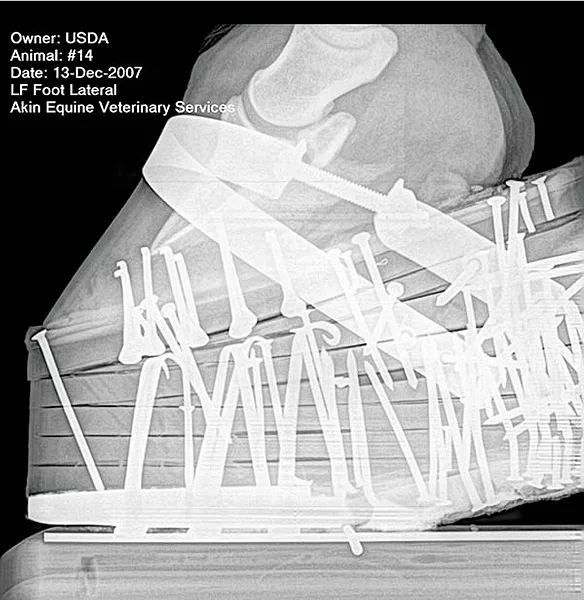American Farriers Journal
American Farriers Journal is the “hands-on” magazine for professional farriers, equine veterinarians and horse care product and service buyers.

What a long strange trip the past year has been for the proposed changes to the Horse Protection Act.
Passed into law 47 years ago, the Horse Protection Act (HPA) “prohibits the showing, sale, auction, exhibition, or transport of sored horses,” according to the United States Department of Agriculture’s (USDA) Animal and Plant Health Inspection Service (APHIS). “Congress found and declared that the soring of horses is cruel and inhumane, and that sored horses, when shown or exhibited, compete unfairly with horses that are not sore.”
APHIS defines soring as “the application of any chemical (e.g. mustard oil or diesel fuel), mechanical agent (e.g. overweight chains), or practice (e.g. trimming a hoof to expose the sensitive tissue) inflicted upon any limb of a horse, that can cause or be expected to cause the horse to suffer physical pain or distress when moving.”
The practice produces a high-stepping gait that’s favored among Tennessee Walking Horses and other related breeds. Although most violations have been recorded in the Tennessee Walking Horse industry, the HPA applies to all horses.
APHIS initially performed show inspections; however, a 1976 amendment turned those duties over to inspectors not affiliated with the USDA.
“APHIS has not achieved the HPA’s objective of ending soring because of two principle weaknesses in the existing regulatory structure: APHIS does not have direct control over the…